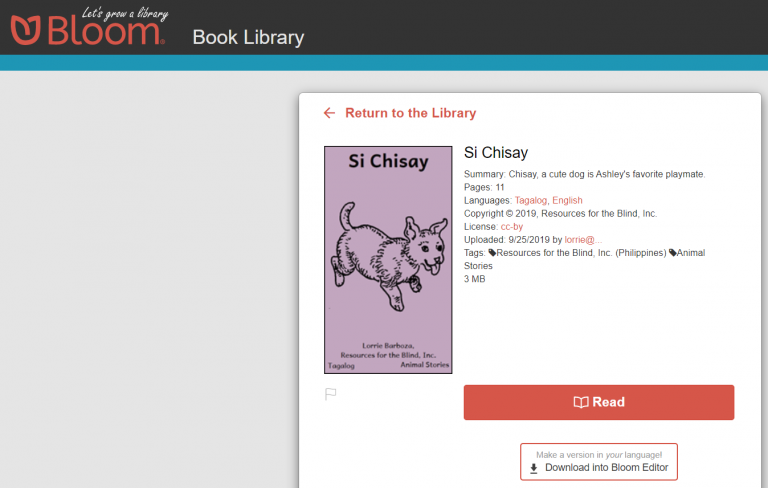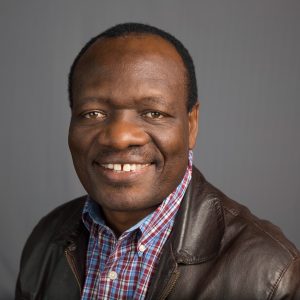Bloom: opening up new opportunities for the blind and vision impaired
By Deb Fox | Wycliffe Today Spring 2020 |

An example of one of the books created for Resources for the Blind through Bloom.
In the world today, there are at least 285 million people who are blind or vision impaired. A 2019 report found that developing nations in Africa and Asia have a higher incidence of eye conditions and vision impairment. The level of eye problems is even greater in rural areas, among ethnic minorities and indigenous populations.
The Philippines is a country with over half a million blind or vision impaired people. In early 2019, Liz was part of a pilot project with Resources for the Blind Philippines (RBI), using the Bloom Reader to create digital books for the blind and those with visual impairments.
Bloom was developed by SIL International as easy-to-use software for creating books and translating them into multiple languages. Australian member John Thomson is one of the Bloom developers and says that people with limited computer skills can easily create literacy materials for their own minority language groups. Bloom is open-source software, making it accessible for more people throughout the world. It also includes ‘shell books’—templates that can be easily modified for specific needs. In addition to books that the general language community can access, Bloom enables groups which are often marginalised to access literature and Scripture.
Liz explains:
SIL LEAD was a major winner of a competition run by All Children Reading, a partnership of USAID, World Vision and the Australian Government. The prize money enabled SIL to enhance the Bloom software with features to allow users to create reading materials suitable for people with visual impairments. During the pilot project, forty books were created at schools in three major Filipino languages, published to tablets and tested with students who are blind or visually impaired.
To help implement the program, Liz served as an IT consultant providing Bloom training to RBI staff in Manila. She says that a moment which stood out to her was seeing one of the older teachers who did not have a lot of computer skills coming to the training and being able to create books in Bloom:
It was like this light was turned on inside her as she started writing a story in one of the local languages and creating tools to help her students engage with the story. Seeing her confidence improve within a few days of training was worth it.
One thing the team needed to focus on was the appearance of illustrations to cater for different levels of visual impairment. This required adding descriptions to images—a necessary element, particularly for those with colour blindness. Various checkboxes can be marked in Bloom to simulate how the image will look to someone with red/green colour blindness, blue/yellow colour blindness or someone with cataracts. The books also needed to be recorded as ‘talking books’, including the image descriptions.
Liz says she is grateful to have been a part of this pilot project which will improve the quality of learning and accessibility for visually impaired students.
Many children who were previously unable to access reading materials can now read books and Bible stories and share them with their families. They may not have 20/20 vision but they do have a bright future ahead.
For more information
Bloom Reader: https://bloomlibrary.org/
Resources for the Blind: http://www.blind.org.ph/



 Thanks for your patience...
Thanks for your patience...